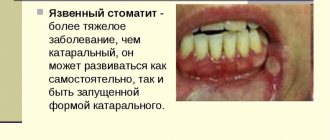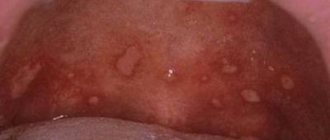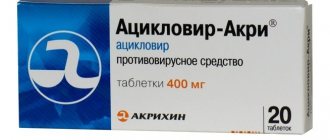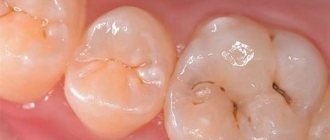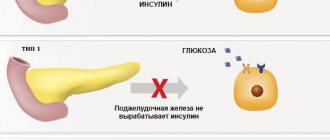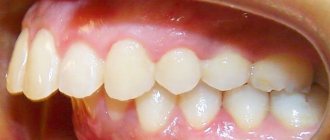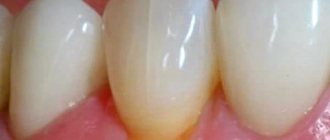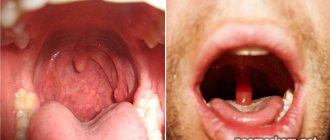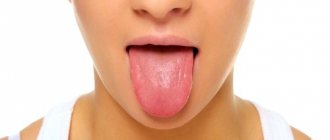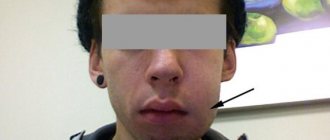Causes
Teeth grinding occurs due to intense contractions of the facial muscles. During sleep, when a person does not control the facial muscles, the jaws begin to move due to muscle tension. Thus, a creak appears.
Bruxism is equally common in both men and women.
According to the international classification of diseases, it is believed that several abnormalities in the body lead to the disease. Bruxism in adults is caused by the following reasons:
- Neurological diseases . Epilepsy, apnea, enuresis, tremors and sleep disturbances are associated with teeth grinding at night. When the trigeminal nerve is damaged, which is a neurological disorder, the facial muscles become overstrained. As a result, the jaw begins to move involuntarily, which causes creaking.
- Dental problems If the denture is chosen incorrectly, the bite is not corrected, or the filling is placed poorly, the risk of destruction of the maxillofacial joint increases. This in turn can cause teeth grinding during sleep.
- Stress . The most common cause of bruxism.
- Problems with the gastrointestinal tract . Reflux disease, caffeine and alcohol abuse, smoking, antidepressants, sleeping pills - all this has a bad effect on the gastrointestinal tract and leads to bruxism.
- Anatomical features of the nasopharynx . For example, a deviated nasal septum, adenoids and allergic rhinitis interfere with breathing, which in turn increases the risk of bruxism.
- Helminths . Although medicine denies the connection between parasites and the appearance of teeth grinding, this factor should not be excluded. Heartworms and other types of parasitic worms themselves do not cause bruxism. However, they affect the nervous system. This in turn leads to a deficiency of vitamin B12, which is necessary for the transmission of nerve impulses from the brain to the body. If the helminthic infestation is not eliminated, vitamin metabolism is disrupted, which leads to a deficiency of these substances. As a result, serious damage is caused to the human nervous system. Moreover, following a lack of vitamins, oxygen deficiency develops. And this causes anemia of muscle tissue and brain.
Important! All types of parasites leave products of their vital activity in the human body, which leads to intoxication and the appearance of diseases.
Symptoms and consequences of bruxism
As has been repeatedly said above, the main symptom of bruxism is involuntary paroxysmal grinding of teeth during sleep. Episodes of such grinding are short-lived: as a rule, their duration is no more than 10 seconds. The patient himself does not hear the sound of grinding, but for his relatives, who are nearby or even in neighboring rooms, this sound causes significant discomfort.
If bruxism continues for years, tooth enamel wears off, teeth become sensitive to temperature factors and are more susceptible to caries, become loose and fall out. In some cases, with pronounced prolonged night grinding, teeth are ground down almost to the roots, which is not only a cosmetic defect, but also entails digestive disorders, because the main function of teeth is grinding food. Also, with bruxism, patients pay attention to the rapid failure of dentures, which are simply worn out.
Since the jaw muscles work intensively during bruxism, they can increase in size: they protrude on both sides of the jaws.
Other indirect signs of bruxism are:
- pain in the ears and/or paranasal sinuses;
- dizziness;
- tinnitus;
- insomnia;
- daytime sleepiness;
- depressive disorders;
- unmotivated anxiety, emotional tension.
Stress as a cause of bruxism in adults
Problems at work and quarrels with loved ones will sooner or later lead to chronic stress. The consequence of this, of course, will be various diseases and deterioration in the functions of internal organs.
Bruxism as a result of stress may be associated with:
- Phobias;
- Constant nightmares;
- Envy of other people's successes;
- Lack of attention;
- High level of responsibility;
- Change of place of residence - and associated unrest;
- Excessive zeal at work, bordering on workaholism;
- Troubles at work, including dismissal
If bruxism in adults appears due to stress, consult a psychologist. The doctor will help you understand your problems and identify the cause that served as the trigger.
Bruxism in adults - types and manifestations
Symptoms of the disorder appear:
- During the day . Rarely seen. Usually associated with prolonged nervous tension due to frequent stress. A psychotherapist will help cure daytime bruxism, but it will be difficult to independently identify the cause of the disease.
- At night . It is observed in most patients with bruxism. A person may grind their teeth several times a night, and the duration of such attacks varies from a few seconds to several minutes. If the pathology is not treated, the teeth will simply begin to wear away. And this in turn will lead to dental and then headaches.
Who's at risk
Bruxism in adults occurs when:
- Neurological diseases;
- Brain injuries;
- Malignant and benign brain tumors;
- Parkinson's disease;
- Curvature of the nasal septum;
- Injuries to the cervical spine received in childhood.
Most people are indifferent to grinding their teeth at night. They do not consider this a reason to see a doctor. However, if bruxism in adults is left untreated for a long time, the situation may change for the worse.
If left untreated, a person with bruxism will experience:
- Cracks in teeth;
- Caries with subsequent tooth destruction;
- Thinning of tooth enamel, and as a result - increased sensitivity to hot and cold foods;
- Deformation of crowns and fillings;
- Loose teeth;
- Inflammatory gum diseases;
- Taste of blood in the mouth;
- Malocclusion;
- Degenerative changes in the temporomandibular joint;
How to treat bruxism in an adult
Close people living with you will help you detect bruxism. Another way to find out about the presence of teeth grinding is to record on a voice recorder , which is found in any mobile phone.
If pathology occurs, observe other symptoms that accompany bruxism. Additional symptoms will help your doctor create a treatment plan. Teeth grinding is usually treated by a neurologist, dentist or psychologist.
If you have problems with your teeth, consult your dentist. An experienced doctor will cure the bite and eliminate other pathologies associated with bruxism.
If teeth grinding is a consequence of stress, you cannot do without a competent psychotherapist. The doctor will identify the true cause of stress that led to bruxism. By the way, you need to visit specialists regularly, since treatment takes time.
In addition to psychotherapeutic assistance, a person must change his lifestyle. Don't ignore this advice. After all, it is complex measures that will give results in the treatment of bruxism.
Diagnostics
Which doctor diagnoses and treats bruxism? Specialists of various profiles are involved in diagnosis and therapy, since it is possible to successfully get rid of night bruxism only by identifying its real cause.
Typically, the first call for help occurs when dental damage occurs. In this case, the dentist makes a preliminary diagnosis based on subjective complaints and examination of the oral cavity.
Additionally, objective studies are carried out using special mouth guards – brux checkers. An onlay made from an individual impression after overnight use is studied to identify occlusal obstacles and the degree of load on different parts of the jaw.
The pathological motor activity of the masticatory muscles is also determined during the study of their bioelectric activity (electromyography) and polysomnography. A more thorough comprehensive examination requires determining the cause. At this stage, consultations with a neurologist, osteopath, psychologist, and other highly specialized specialists can be prescribed.
Treatment of stress-related bruxism
Bruxism in adults caused by psychoemotional disorders is treated:
- Applying compresses to the jaw, cheeks and neck;
- Meditation or auto-training;
- Massage your back, neck and even your face. At the same time, you can massage the facial muscles yourself;
- Exercises to relax the muscles of the upper body;
- Breathing exercises.
If bruxism is severe, medications are prescribed. Among them:
- B vitamins;
- Muscle relaxants to relax muscles;
- Sedatives;
- Botox, which also relaxes the jaw muscles.
Additionally, to treat psychosomatic bruxism, doctors can refer you to hypnotherapy.
Please note that all medications or procedures are prescribed exclusively by a doctor, since an individual therapy program is selected for each person.
Treatment methods used
In order to get rid of such a very unpleasant phenomenon, harmful to the general health, as bruxism, it is necessary to find out the reasons why it arose. It is the elimination of these prerequisites that will help say goodbye to voluntary teeth grinding. In this case, the therapy is different for each patient.
To search for possible causes, it is worth consulting with specialists such as a neurologist, psychologist, and sometimes an otolaryngologist. You will also need the help of a dentist.
Saying goodbye to bruxism on your own is almost impossible, because there is no common solution to this problem, and treatment is selected individually for each patient. Therefore, it is extremely necessary to undergo a comprehensive examination by truly qualified specialists.
It is possible that, according to doctors’ prescriptions, work on eliminating teeth grinding will continue on your own at home.
The first and mandatory step in the fight against the disease should be a trip to the dentist's office. After all, arbitrary grinding of teeth harms the health of tooth enamel and negatively affects the jaw joints. There is a possibility that you will need to consult an orthopedic dentist, orthodontist, dental therapist, or periodontist. They will help answer the question of how to treat bruxism with maximum effectiveness.
As part of dental treatment, the following measures can be taken:
- Correction of occlusion in patients both in childhood and in adulthood. It is important to choose the right braces, plates or trainers.
- Grinding of individual teeth that may protrude above the rest of the teeth, and these are the ones that bear the greatest load. This will make it possible to distribute the load on the teeth evenly in accordance with the functions they perform.
- Selection and installation of dentures, if necessary. Incorrectly selected dentures can only complicate the course of bruxism.
- The purpose of specially selected, custom-made silicone mouthguards that protect teeth during grinding. Thanks to the mouthguard, you can track the force of the grinding. As the mouthguard wears out, it should be replaced with a new one.
Another possible treatment for bruxism is Botox injections. They help relieve tension in the chewing muscles. The procedure must be performed by a qualified physician. The only drawback of this treatment is that it must be repeated every six months, since it is during this time that the effect of Botox ends.
Often, a trip to the dentist and dental treatment is not enough, because bruxism can cause disturbances in the functioning of the nervous system.
Neurological treatment methods include:
- The use of herbal-based sedatives (for example, Persen, Novo-Passit).
- Prescription of nootropic sedative medications (for example, Tenoten, Pantogam).
- Consumption of B vitamins, magnesium and calcium supplements.
- Conducting hypnosis and/or psychotherapy sessions.
- Using tinctures of valerian and motherwort.
At home, as an addition to professional treatment, you can perform massages and exercises to relax the lower jaw. You can take soothing herbal baths.

